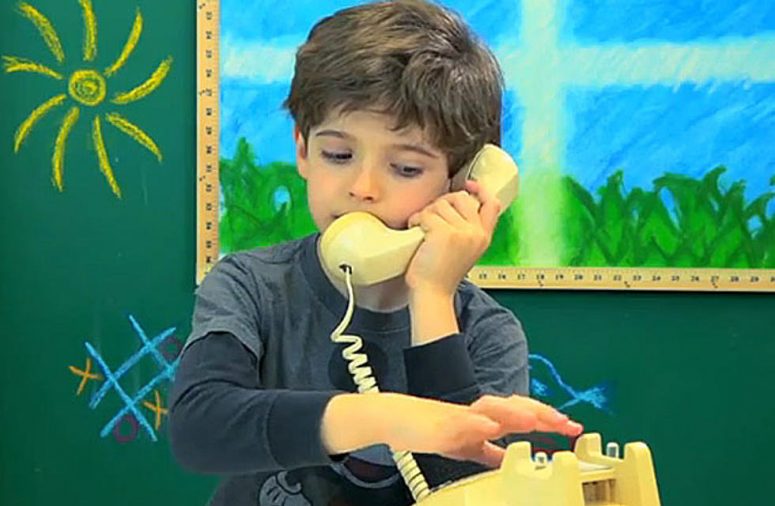5 ways to get kids off their phones
The following was presented last week as part of my book event series

A year after publishing my best-selling book, Log Off: How to Stay Connected after Disconnecting, the most popular question I’m asked is, “How do I get my kids off their phone?” After speaking with many psychologists, researchers, parents, and tech experts, in addition to testing said advice on my own household, I’ve found five convincing answers to this timely and challenging question.
But why are so many people asking this question? The short answer is parents love their kids and know first-hand how addictive said devices can be, especially for developing minds. The long answer involves stark evidence that smartphones: a) complicate childhood, b) increase exposure to bullying and sexual content, c) impair sleep, and d) increase both anxiety and depression.
Because of this, most psychologists, medical experts, and even tech executives recommend delaying or waiting until age 14 for basic voice and texting phones, and then up to 16 for smartphones and/or data plans. “There is no reason that a teenager really needs a smartphone,” says one Silicon Valley psychologist. “They are not taking care of a family, nor are they running a business. Therefore, a basic cellphone should be adequate for their needs.”
When you consider that these devices can be just as powerful as (or more so than) driving a car, it’s no coincidence that the ideal age falls within legal driving range of 14-16 (depending on the state). Nevertheless, the responsibility lies upon parents, guardians, teachers, and our collective villages to teach and instruct children on how to use and get the most from this powerful tools while avoiding the negative heads-down behavior they often cause.
If you’re hoping for a silver bullet to rid your children of their bad phone habits, I cannot help you. But if you looking for proven advice that’s easy to understand but often difficult to master, consider these five effective ways, according to the latest research:
- Practice what you preach. The first and arguably most challenging step is to lead by example. So instead of “Do as I say, not as I do,” show your kids what life can be like without the constant interruption and distraction that smartphones, digital work, and social media have introduced into our lives. Demonstrate what a heads-up life looks like. Portion-control your own technology first and demonstrate how to live a mostly offline life. You can do this by disabling all audible and visual alerts unless they’re triggered by the VIPs in your life (i.e. friends, family, partners, and bosses at most).
- Establish enforceable rules with your kids. For example, read this wonderful sample letter written by Families Managing Media. As you can see, enforceable rules teach the importance of parental controls, proper etiquette, use cases, passwords, number of allowed apps (5-10), app store access, approved locations (i.e. no bedrooms and meal use), photo sharing, and consequences for abusing any of the included rules.
- Include your child in discussions. While the rules you establish should in now way be a contract—immature minds are incapable of negotiating and honoring contracts—you should consider your child’s concerns when setting rules. “These rules are designed to help you and protect you,” the sample reads. “They are not negotiable by you; however, you are encouraged to give your opinion and comments as we all work together to make your phone experience a good one and a safe one.” After my teenage daughter expressed frustration over our phone policy recently, my wife lovingly approached her and said, “I know that this is hard for you, but I feel strongly in my heart that it’s the right thing for you right now and hope you can trust your father and I.” It worked!
- Confiscate phones for abuse rather than general punishment. “Your child’s cell phone is their main lifeline, and connection to their world,” explains Dr. Susan Newman. “Acknowledging this can help guide you when you’re setting boundaries and establishing consequences,” she adds.
- Encourage and reward offline behavior. This is one of the most powerful tools of all. In addition to setting the example yourself (no excessive Netflix!), ask your kids what they want to accomplish offline, and then reward them for time spent outside, playing with friends, exercising, completing homework, planning parties, reading books, listening to music, developing a new hobby, fasting from media and screens for prolonged periods, socializing, dancing, gardening—whatever! If they want added phone time, make your child engage in offline things first, and you’ll be surprised how they naturally start gravitating towards more physical and in-person activities.
BONUS: Be willing to become “the worst parent ever!” On emotionally days, you will inevitably become this. Don’t fret or falter. You’re doing the right thing for your child in the long-run, even if it’s painful in the short-term.
If the last few years with my late-adopting teenager are any indication, enforcing healthy smartphone habits isn’t easy. But with your disciplined and calculated example of appropriate phone use, I hope your offline parenting life will be as blissful as I know they can be.
